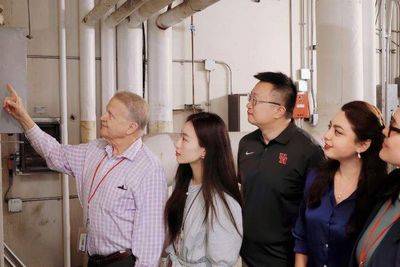dream team
University of Houston collaborates with county on future-facing sustainability efforts
Researchers at the University of Houston are partnering with the Harris County Office of County Administration’s Sustainability Office, the Harris County Energy Management Team, and other county staff in an effort to develop a comprehensive baseline of energy use and energy-use intensity that will aim to reduce energy costs and emissions in county facilities.
Once fully established, the team will work on tracking progress and evaluating the effectiveness of energy-saving measures over time. They will begin to build the foundation for future programs aimed at maximizing savings, reducing energy consumption, and increasing the use of renewable energy sources in county operations.
Harris County energy managers, Glen Rhoden and Yas Ahmadi, will work with UH professionals, including:
- Jian Shi, UH Cullen College of Engineering associate professor of engineering technology and electrical and computer engineering
- Zhu Han, Moores professor of electrical and computer engineering
- Xidan "Delia" Zhang, UH research intern
The group began collaborating a year ago, and analyzed energy consumption data from county facilities.They were able to successfully identify key summertime energy-saving opportunities and completed retro-commissioning of four county buildings. Those efforts saved over $230,000 annually in electricity costs.
“This project is a prime example of how impactful research at UH can be when applied to real-world challenges, delivering tangible benefits to both the environment and the communities we serve,” Shi says in a news release.
The team will plan to do additional building projects, which includes the development of solar energy and heat pump initiatives, building automation system upgrades, and LED lighting installations. The goal is to reduce electricity usage by at least 5 percent per year for county facilities by 2030 and cut greenhouse gas emissions by 50 percent over the next 5 years for county buildings.
“Addressing climate change and the energy transition requires a collaborative effort that is not only data-driven and action-oriented but also human-centric,” Shi adds. “It’s about more than just technology—it’s about improving the quality of life for Texans.”
